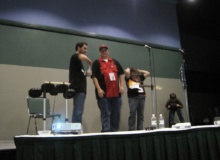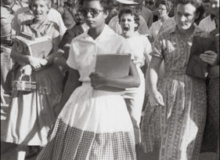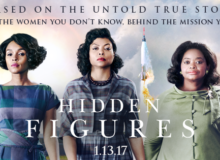Last August I was fortunate enough to be part of a NASA tweetup celebrating the final shuttle mission, STS-135. While there I met a lot of super cool people, both fellow STEM and space enthusiasts as well as lots of passionate NASA employees and contractors. After the official tweetup activities (riding the shuttle simulator!) were over, several people involved with NASA met the attendees for dinner. I was lucky enough to be sitting across from the delightful Holly Griffith. Holly was getting ready to end her position with Shuttle mission control (since there would no longer be a shuttle program) but was excited that she had the opportunity to move over to the International Space Station team.
Since “I work at Mission Control” is one of the coolest answers to “What do you do?” I asked Holly if she’d be willing to answer a few questions for us. She kindly obliged:
—-
What is your job title?
ISS OSO (Operations Support Officer) flight controller
How long have you held this job specifically, and how long have you worked at Johnson Space Center?
I have held the ISS job since August 1, just after STS-135 landed. I’ve worked at Johnson Space Center since March 2004 as an Electrical Power Systems flight controller for the Space Shuttle until August 1. I interned in Huntsville, AL, doing some work with Marshall Spaceflight Center when I was in college.
What does Mission Control do in general? How is working on the ISS side of things different than working in the shuttle program?
If you’ve ever seen Apollo 13, that’s an excellent portrayal of what Mission Control does. Mission Control monitors all of the data coming down from the vehicle. Whenever there’s a problem, we respond to that using various procedures. Everyone in Mission Control is responsible for their own system – you have the electrical system, environmental system, communications system, etc, led by the Flight Director. Shuttle and ISS are VERY different – in Shuttle, there were different certifications for ascent, orbit, and entry. In ISS there’s just the orbit phase of flight. In Shuttle missions would launch, complete the mission objectives, and come back home. Any problems that we would have on Shuttle during a mission could be fixed on the ground in between missions. That’s not true with ISS – the astronauts have to do all of their own maintenance and repairs so it’s a bit of a challenge sometimes. We thought of Shuttle missions like a sprint, and ISS is more like a marathon.
What do you do on a typical day?
A typical day as a newbie coming in on the ISS side…lots of classes and reading!!! We need to know every nook and cranny of ISS, so that means learning as much as you can by taking the classes that are required in our training flow and self-study. Once that’s finished, I’ll move into the sim flow. This means that I’ll be sitting on console again working sims (simulations), where we have the flight control team in Mission Control and the astronauts in another building in a training mockup and our training team throws failures at us. They make it look like different pieces of equipment are failing and we have to try and fix it in a certain amount of time. This can be anything from a light burning out to loss of all cooling on board the station.
Do you still get a thrill out of talking to people in space? (I still won’t shut up about getting to talk to the ISS on my tweetup, I can’t imagine that thrill ever totally diminishes).
I don’t talk to them personally but I do communicate with them via notes or email. It never gets old to see something you wrote make it on board.
What is your favorite part of your job?
Simulations, or ‘sims’. We have the whole MCC team on console in a pretend mission scenario. The training team throws failures at us and we have to figure out how to fix them.
What is your least favorite part of the job?
Those normal office days with meetings or lots of reading or paperwork. Even though so much of our job is ridiculously exciting, we still have those days where we’re in front of our computers reading email or going to lots of meetings. In that regard I’d say it’s just like any other job even though the topic of the emails or meetings may be more interesting.
What is an aspect of Mission Control that an outsider would find surprising?
We work with a lot of funny people who like to laugh and have fun. We understand the seriousness of our jobs but we also know that you have to have fun while you do it or you won’t be very good at it. As a flight controller technical knowledge is obviously very important, but even more important is communication. You have to be able to communicate a very detailed problem in your system to someone else who doesn’t know as much about your system as you do and you have to do it in a timely manner.
The flight director is in charge of Mission Control and has final say on all decisions. Flight directors are former flight controllers – so if a flight director was in the propulsion system before, and I’m a controller in the electrical system and there’s a failure, I have to be able to explain not only the failure but what my recommendation is to fix it and why I think it’s the right thing to do – all in minutes or less. Then imagine if there’s a failure in the communications system – that officer has to do the same thing for their system and the flight director has to take all of this information into account and make a final decision about what’s more important and what course of action we’ll take.
We’re not all the straight-edge hardcore engineers that you see on TV. We laugh a lot. We tell a lot of jokes. We have food ops! But we always know that the crew’s safety is our number 1 priority. It’s an amazing group of people who are great at what they do 🙂
What is the geekiest part of your job?
It’s rocket science – it’s all geeky!!!
If a kid wanted to pursue a career as a Mission Control worker what should they study or what skills should they acquire now that will help them in college or the early part of their career?
They should study mechanical, electrical, or aerospace engineering. They need to be good at science and math, but they also need to be able to think critically. We have procedures for some failures but a lot of failures that we see are things we never thought about so you have to be able to take a step back, look at all of the information that you do have, and based on what you know as an engineer and your system you need to be able to put the puzzle pieces together and decide what it is you’re seeing and what you think we need to do to fix it. On STS-117 some of the Russian computers that controlled the attitude of the ISS went down. We had never seen that before. Luckily Shuttle was docked, so we were able to use the Shuttle’s jets to control the attitude. But, this was a big failure and we didn’t know how long it would take to solve it. Shuttle had a limited amount of “gas” – Oxygen and Hydrogen for its fuel cells – to stay on orbit. After awhile that would eventually run out. Think about it like your house – if you keep your lights on, your AC running, and always watch TV, you use more electricity. The more electricity we used the more gas we used. So we came up with a plan to turn off a lot of equipment in Shuttle that wasn’t essential to save gas and be able to stay up in space and docked to ISS longer to give the engineers on the ground more time to figure out the problem. Eventually we did so our efforts had been worth it.
That’s a long answer, but it shows that you have to be able to think outside of the box. It wasn’t just that the computers had failed, it was everything else that was affected that we had to think about. My system was the electrical system and had to coordinate with all of the other systems in order to power things down. For that, communication and teamwork were just as essential as technical knowledge.
When I got to visit you at JSC, it seemed like there were a lot of female employees, many in STEM positions. In your experience would you say that you are still in a male dominated field?
It’s still male dominated but it’s not bad. Overall women only make up about 20% of total engineers, so it’s not unrealistic to expect there to be more men than women. In this job you have to trust your fellow flight controllers otherwise bad things happen, regardless of gender. I have heard that women are naturally better at flight control due to the amount of communication involved, but I don’t have any numbers to back that up.
What other geeky hobbies or interests do you have?
Video games (Skyrim & Star Wars: The Old Republic right now), reading (I’m in the middle of Neil deGrasse Tyson’s new book: ‘Space Chronicles: Facing the Ultimate Frontier’), watching TV (Big Bang Theory of course!, The Clone Wars, The Daily Show, The Colbert Report, and South Park are just a few of my faves), podcasts (StarTalk with Neil deGrasse Tyson, The Skeptic’s Guide to the Universe), and spoiling my cat – Star. I actually have a Star Wars room in my house so I’m always on the lookout for new things to add to it. I have the autographs of Mark Hamill, Carrie Fisher, Jeremy Bulloch, Dave Filoni, and Marina Sirtis (yes, I know she’s Star Trek, but she fits in). I was able to tour Skywalker Ranch last year and that was unbelievable.
I’ll be speaking at South by Southwest this weekend on how to get more people interested in the space program, and I’m working on ideas for a presentation tying science and science fiction and how they influence each other. If you can think of anything, let me know!







